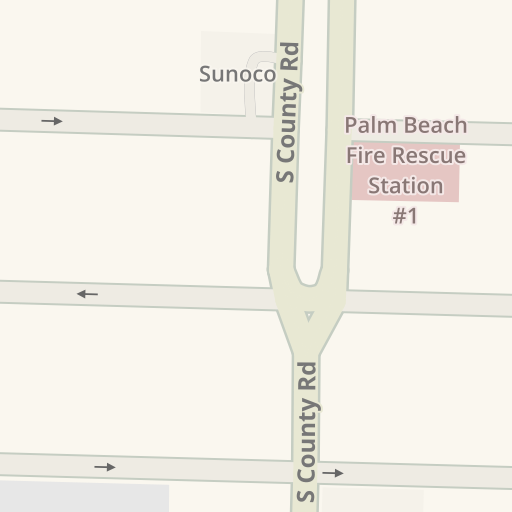20 Handy Tips For Deciding On Business Trust Management Planning
Tips On Trust Settlements In Estate PlanningHere are 10 guidelines on trust settlements and estate planning agreements to assist family members, individuals as well as professionals navigate the process. Each tip is accompanied by an explanation, as well as key pros and cons that can assist you in evaluating the potential outcomes and options. 1. Keep detailed records of every activity
Tip: Keep a record of all decisions, communications and distributions that you make during the settlement process.
Pros Protects trustees from a slew of liability
Cons: Administration workload and continuous diligence are required.
2. Contact your Beneficiaries Frequently
Keep beneficiaries up to date regarding deadlines, asset valuations and any decisions.
Pros: Increases trust and avoids legal disputes.
Pros: Beneficiaries may react emotionally or disagree with the decisions.
3. Quickly file your tax returns for the final tax year.
Tip: Both the will of the deceased and final federal state tax returns are required.
Pros: Ensures legal compliance.
Cons: Complexity can be increased when estates are larger, or multiple income sources.
4. Consider a partial distribution option
Tips: Divide your initial money while keeping an account for tax savings or other expenditures.
Pros: Helps beneficiaries access funds sooner.
Cons: Needs careful estimation to prevent shortfalls.
5. The accounting for charitable bequests
Tip: If the trust contains charitable donations Prioritize these gifts in line to the wishes of the settlor.
Pros: You can get estate tax benefits and meet your philanthropic goals.
Pros: Incorrect timing or the paperwork may result in deductions.
6. Be aware of specific state-specific trust Laws
Tip: There are different laws for each state in relation to trust settlements. They may also have different deadlines for notice and creditor periods.
Cons: Following the law will help you avoid legal responsibilities.
Pros: Multi-state trusts can be difficult to understand.
7. Avoid Commingling of Funds
Don't mix trust assets and personal money. Use an entirely separate trust bank.
Benefits: It ensures the transparency of the company, and also acts as a fiduciary.
Cons: Requires diligent bookkeeping and legal awareness.
Shut all Trust Accounts
Tips: After the final distributions make sure you close the bank, investment and administrative accounts linked to the trust.
Benefits: Limits exposure to future claims, and helps to close trust.
Cons: A missing account could delay settlement to the fullest extent.
9. Keep the settlement records for at the very least a few years
Tip: Maintain all records regarding the settlement of your case, including receipts, notices and files.
Benefits: Very helpful in the case of audits or disputes.
Cons Storage and organization of documents must be secure.
10. Don't distribute sentimental items or other memorabilia without proper care
Tip: Handle personal belongings as heirlooms by documenting them with clarity and family sensitivity.
Pros: Reduces emotional conflict.
Cons: This could cause tension if there are disputes or things that have not been addressed explicitly within the trust. Take a look at the top settlement trust for blog info including first security bank and trust, us bank locations, banking insurance, whos the best bank, bank loans near me, us copyright, banks in minnesota, customer bank service, park copyright loans, banks with online banking and more.

The 10 Most Effective Tips On Commercial Bank Accounts In Melbourne Florida
There are 10 distinct tips for business banking in Melbourne Florida. We have included explanations of the pros and cons. They cover everything from selecting the right bank to optimizing your business banking experience in the local environment.
1. Create Multi-User Role Controls, Access Controls
Tips : Give employees and accountants custom roles to gain account access.
Pros: Improves accountability and security.
Cons: Not all bank offer customizable roles.
2. Start a Business Savings account or Money Market Account
Tip: Use savings accounts to build an emergency fund or to hold idle capital.
Pros: Earn interest, support financial stability.
Pros: Certain banks might have minimum balances that are large, or restrict transfers.
3. Seek out banks that accept cash deposits
Ask your bank about cash deposit limits and charges if you're running a cash-intensive business (e.g. food service, retail).
Pros: Secure and fast deposits.
Cons: Some banks charge fees for cash handling when you go over certain thresholds.
4. Make use of Positive Payments and Fraud Detection Tools
Tips: Banks such as Regions and Wells Fargo offer fraud prevention for both checks and ACH transactions.
Pros: Reduces risk of fraud or unauthorized withdrawals.
Pros: These features are usually included with premium accounts or add-ons.
5. Make sure to check for FDIC and NCUA Insurance
Ensure that your deposits are insured to the maximum of $250,000.
Pros: Financial safety and compliance.
Cons: Businesses that must distribute cash out have greater reserves.
6. Learn about the fees for Wire Transfers and ACH
Tip: Compare domestic/international wire fees and ACH origination fees if you pay suppliers or contractors electronically.
Pros: Smooth recurring payments.
Cons: Fees could differ, and smaller banks might not support ACH.
7. Find a Business Banker
Tips: Build a strong relationship with a banker who is aware of your goals as well as the field you work in.
Pros Advantages: Faster service, expert advice, and easier application for loans.
Cons: Larger banks may not have personal bankers available for smaller businesses.
8. Think about using credit cards for business to control costs
Melbourne's banks provide business cards that come with travel or cash-back benefits and rewards.
Features: It can help you build your business credit and helps you keep track of your expenses.
Cons: High APR in the event that it is not paid back monthly; may need a personal guarantee.
9. Ask About Community Assistance Programs
TIP Some community banks provide support to local businesses in the in the form of sponsorships, grants or networking events.
Pros: Good for goodwill and exposure.
Pros: Programs are restricted to specific industries and non-profits.
10. Be Prepared by having the correct documents
Tips: Bring your EIN or Articles of Incorporation, a business license, and operating agreement to open an account.
Cons: The time to set up is reduced.
Cons: Incomplete or wrong documents could delay the approval of a bank account. Take a look at the top rated banks near me in Melbourne FL for website tips including biggest investment banks, trust co, opening a bank, us bank online account, first online bank, best of bank, community banking online, banking online banking, best banks in san antonio, people's bank customer service and more.
